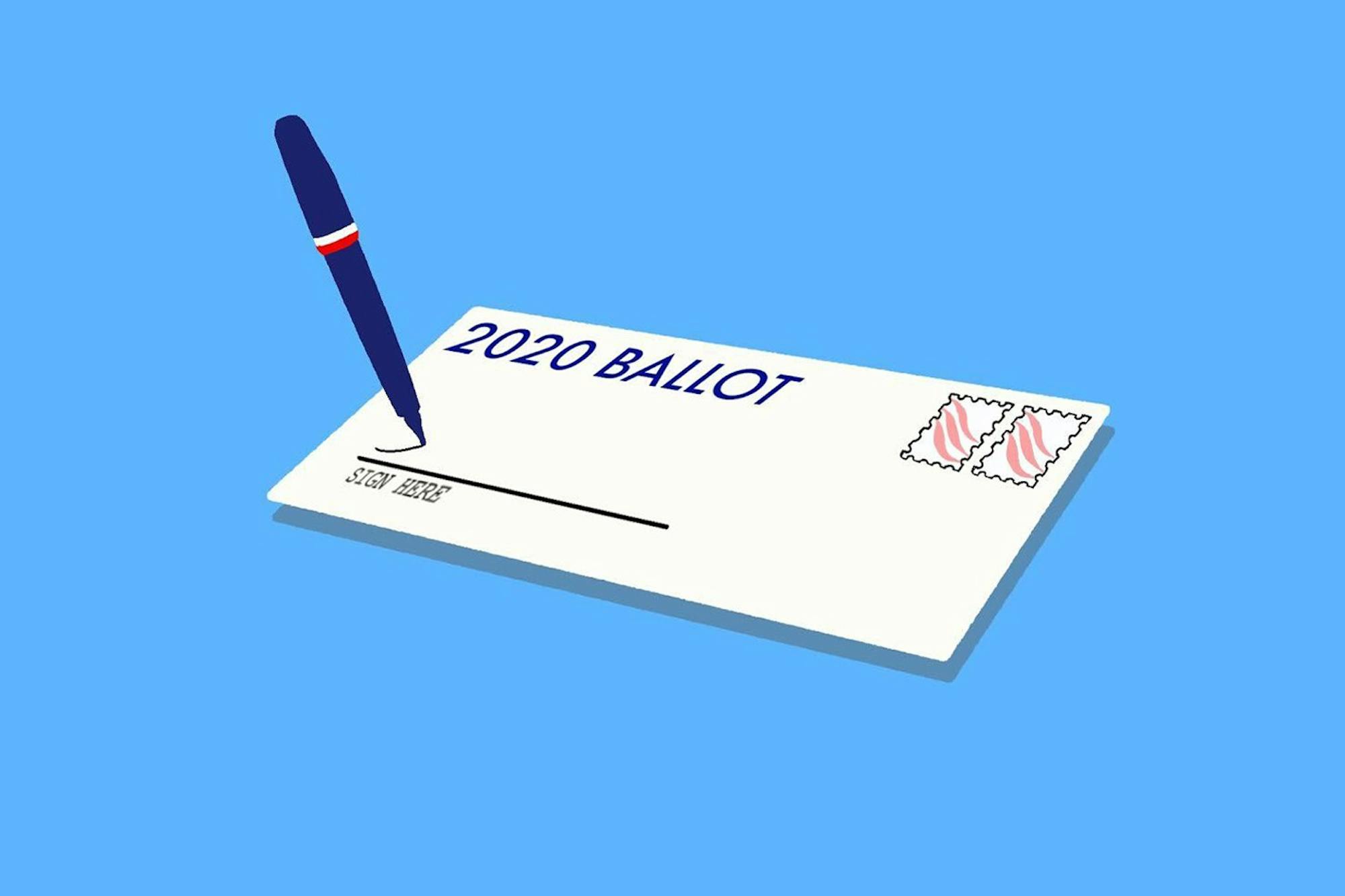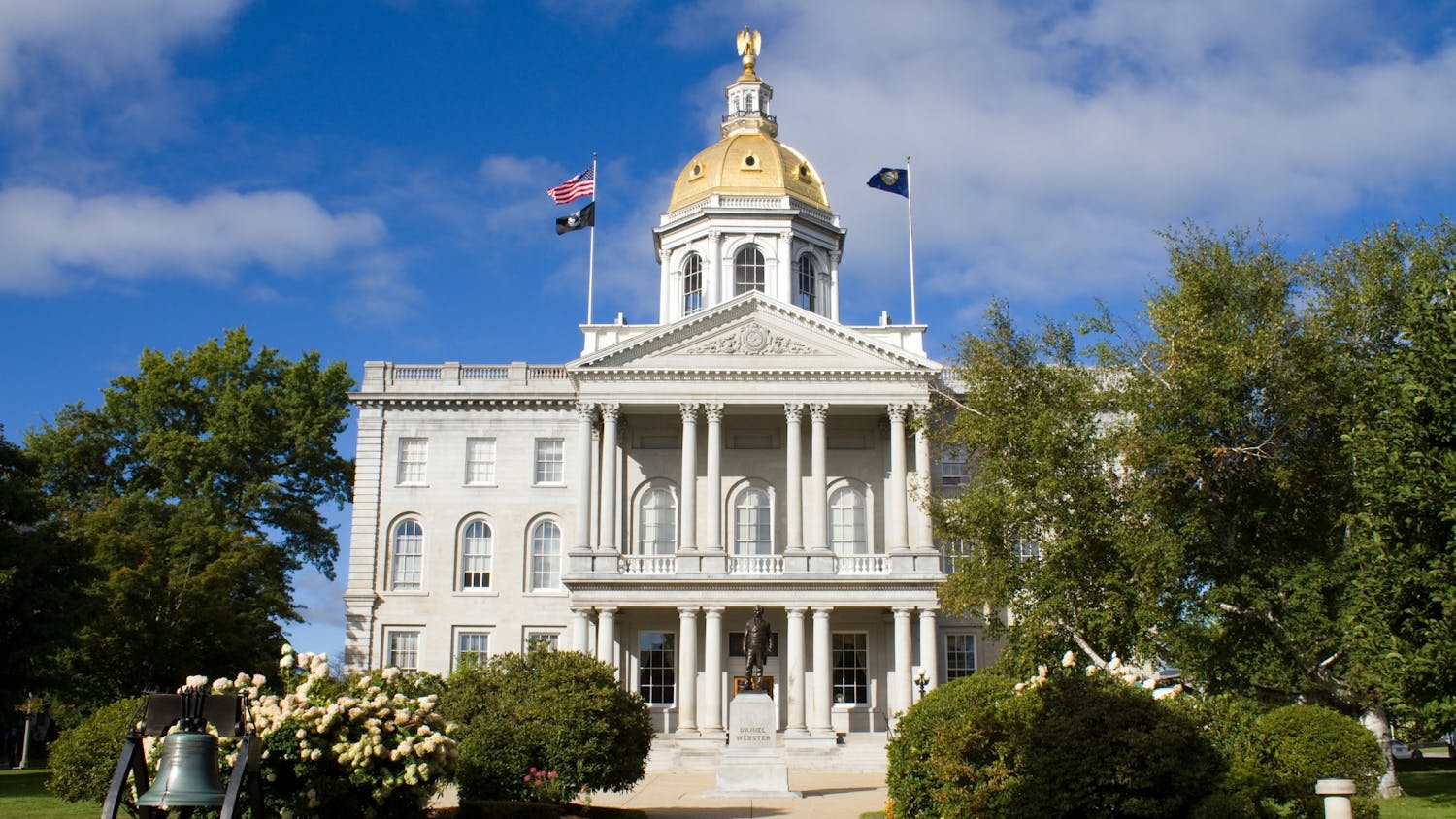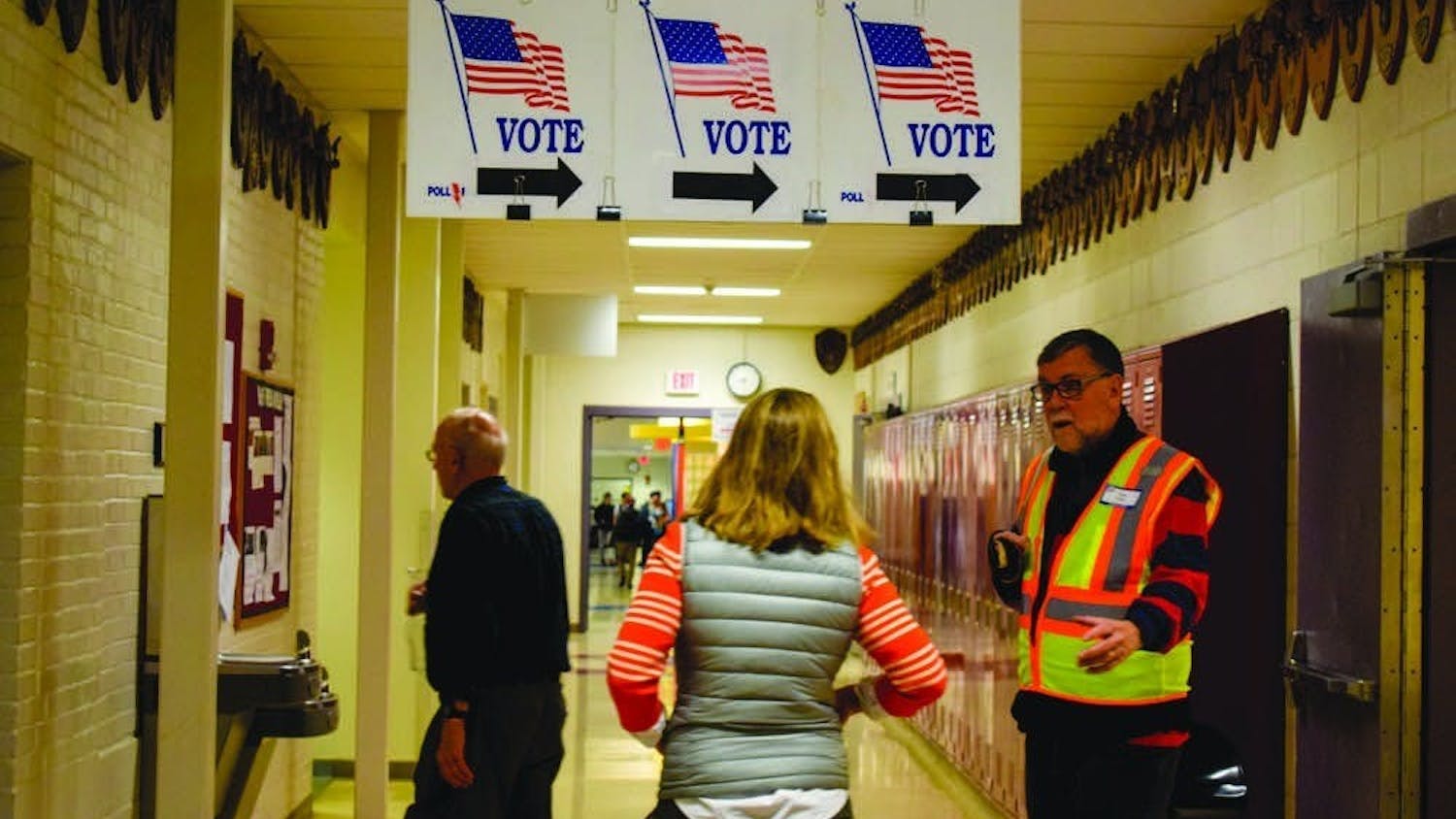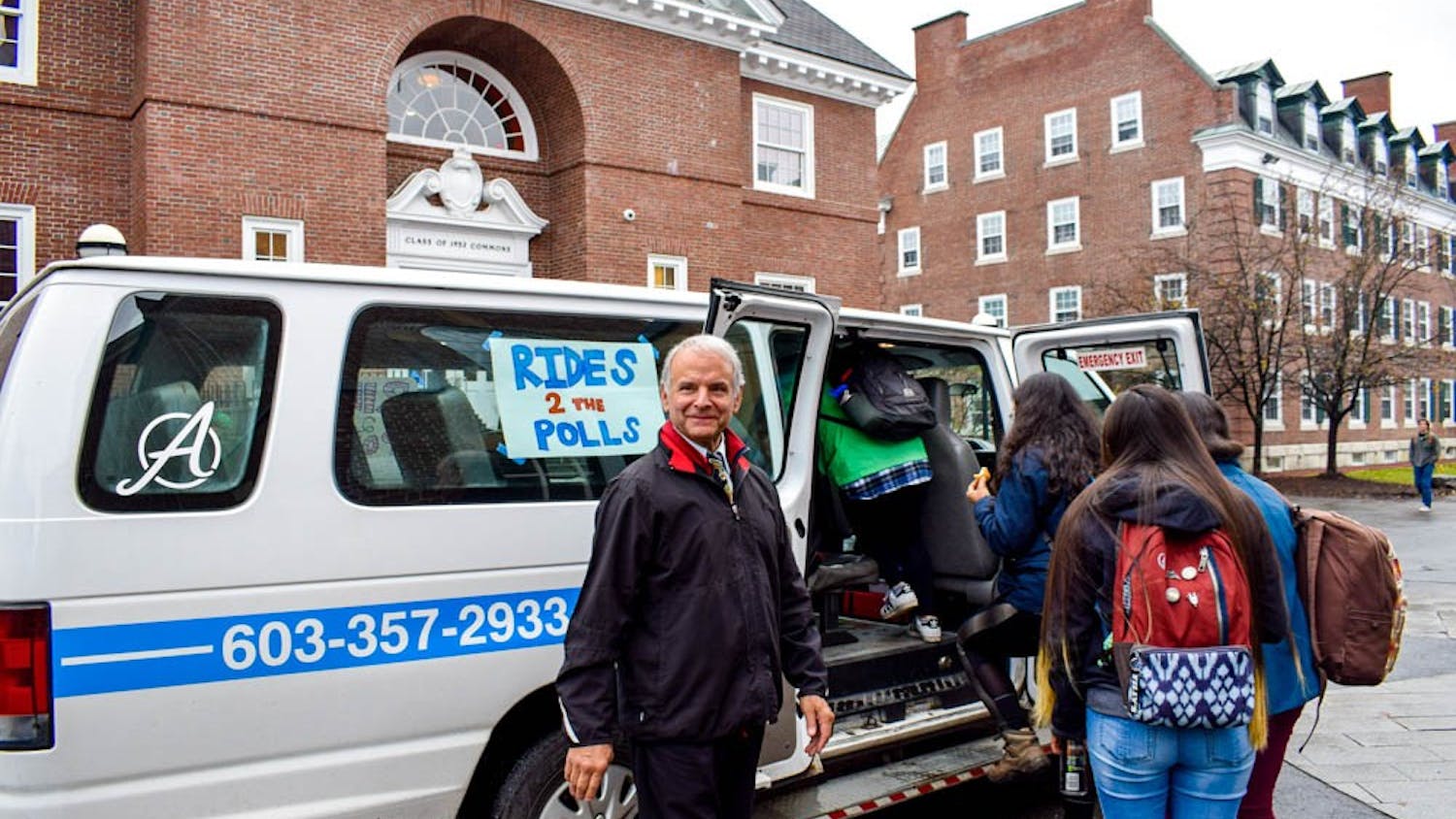This article is featured in the 2020 Freshman special issue.
Despite educational disruption and geographic displacement, both new and returning students will have the opportunity to vote in New Hampshire this year. The New Hampshire primary election took place Sept. 8 and will be followed by the general election on Nov. 3.
This election cycle comes in the wake of the New Hampshire Superior Court striking down Senate Bill 3, a controversial state law that required people who register to vote within 30 days of an election to provide proof of domicile. The law, signed by New Hampshire Gov. Chris Sununu (R) in July 2017, has faced criticism for causing confusion among student voters and hindering the same-day voter registration process.
SB 3 was challenged in court by the New Hampshire League of Women Voters, the New Hampshire Democratic Party and six individuals, including former state representative Garrett Muscatel ’20. After facing a preliminary injunction in October 2018, the New Hampshire Superior Court struck down SB 3 in April, though the decision is expected to be appealed.
In addition to SB 3, another law, House Bill 1264, also faced scrutiny for modifying the legal definition of residency and potentially requiring voters to obtain a New Hampshire driver’s license. In February 2019, the American Civil Liberties Union of New Hampshire, representing plaintiffs Maggie Flaherty ’21 and Caroline Casey ’21, filed a lawsuit challenging HB 1264 after critics expressed concerns that the law infringed on the right to vote of college students coming from out of state. After the New Hampshire Supreme Court clarified that HB 1264 ultimately had no effect on voters, however, the plaintiffs withdrew the case in May.
Despite the controversies surrounding SB 3 and HB 1264, Dartmouth College Democrats president Emery Rheam ’22 reaffirmed that most students are eligible to vote in New Hampshire for the upcoming elections.
“Voting’s about domicility, which means that if you live in New Hampshire, if you live in a dorm at Dartmouth, you are domiciled in New Hampshire,” Rheam said. “The same goes if you live off campus in Hanover or in a surrounding town.”
She also stated that incoming ’24s are eligible to vote in New Hampshire unless they have opted to take fall term remotely and have never lived in the state, in which case they cannot vote in New Hampshire. For ’23s, ’22s and ’21s who have been “temporarily displaced” by the pandemic for fall term but intend to return for future terms, Rheam explained that they may also vote in New Hampshire via absentee ballot as long as they are not registered to vote in their home states. Hanover town clerk Betsy McClain confirmed these details were correct.
The College Republicans did not respond to requests for comment.
McClain explained that the town of Hanover is currently encouraging people to vote via absentee ballot rather than in person due to the pandemic. To request an absentee ballot, voters can either access the ballot request form on the town of Hanover’s website or contact the town clerk’s office to have a copy of the request form sent to them. Voters can submit the form electronically, mail it or leave it in the dropbox outside of the Hanover town hall. Unregistered voters have the option on the ballot request form to request voter registration materials be sent to them.
Upon receiving the absentee voter registration packet, registrants must physically sign a printed copy of the voter registration form and submit it by mail along with an absentee voter registration affidavit, which must be physically signed in front of a witness other than the registrant. In addition to the two physical forms, registrants must also send in proof of identity and proof of Hanover domicile, both of which can be submitted electronically.
McClain noted that voter registration in New Hampshire is typically “designed to take place in person” as people who wish to register absentee are required to have a valid excuse — concerns about COVID-19 qualify — and must engage in a longer registration process.
“The Secretary of State’s office is pretty explicit that the [absentee registration] process is more cumbersome than presenting oneself in person,” McClain said. “With that being said, there always has been absentee voter registration. With the pandemic, the qualifications of who can register to vote absentee have been expanded to include all individuals who have concerns about COVID-19.”
Rheam advised voters to fill out and mail in their ballots “as early as possible” to avoid potential postal service delays and ensure their ballots are counted.
“Unlike other states, postmark is irrelevant [in New Hampshire],” McClain said. “The cast ballot must be received by election officials by 5 p.m. on election day.” She added that people who do not have time to mail their ballot or who prefer to drop it off in person can also leave their ballot in the drop box outside of the town hall, describing the drop box as “secure” and monitored by 24-hour video surveillance.
In-person voting will also still take place this year — with safety precautions including social distancing, mask requirements and pens that every voter will take home with them after filling out their ballot. The Sept. 8 primary election took place at Leverone Field House rather than at the usual polling station at the Hanover High School gymnasium in order to accommodate social distancing.
“It will look kind of like going to the doctor in terms of tubs of hand sanitizer and all of the other protective equipment,” McClain said.
When filling out the ballot for the primary, voters found Dartmouth students and faculty running in the Democratic primary for seats in the state legislature. These candidates included former College Democrats president Riley Gordon ’22 and government professor Russell Muirhead, who were running for seats in the New Hampshire House of Representatives, as well as Spanish and comparative literature professor Beatriz Pastor, who ran for a seat in the state Senate. Victoria Xiao ’22 was also in the running for state representative but suspended her campaign in late July.
Pastor previously served in the state Senate from 2008 to 2014, and ran to replace retiring state senator Martha Hennessey ’76 (D-Hanover). Gordon and Muirhead, the latter of whom recently stepped down as the interim director at the Rockefeller Center for Public Policy, are two of nine total candidates who ran for Hanover’s four seats in the state House. Of these four seats, occupied by Rep. Polly Kent Campion (D-Etna), Rep. Mary Jane Mulligan (D-Hanover), Rep. Sharon Nordgren (D-Hanover) and Muscatel, only Nordgren sought re-election in the fall. Though Muscatel had already planned to retire this year, he resigned in June following questions about his state residency that arose due to COVID-19.
On Sept. 8, Muirhead won the second-most votes in the House district after Nordgren, setting both on a glide path to election to the lower chamber in November along with two other candidates. Gordon placed sixth in the crowded primary and has pledged his support to the four winning candidates. Pastor, behind by just 68 votes — a margin of 0.8 percent — in the final tally in her state Senate primary, has requested a recount, and the race has not been called as of Sept. 10.
Both Muirhead and Pastor discussed the difficulties that the pandemic posed to the campaigning process, highlighting the hindrance to typical “face-to-face” interactions with voters.
“Normally, people running for state rep will go door-to-door and try to introduce themselves to their neighbors who they haven’t met before,” Muirhead said. “That kind of canvassing can’t be done.”
In place of conventional canvassing, Muirhead added that his campaign has been passing out absentee ballot request forms to voters while wearing masks and observing social distancing guidelines.
Pastor said that she has participated in a number of virtual events — sponsored by local Democratic committees from various towns in the district — allowing voters to get to know candidates and ask questions. While Pastor said the events were “productive,” she explained that they were “no substitute” for meeting voters in person.
“Doing it this way, you have no sense of what’s happening, really,” she said. “You have no sense if viewers are connecting with you or not. You don’t get a sense of the audience — you don’t get a sense of the electorate.”
Gordon, Muirhead and Pastor all spoke about the importance of students requesting absentee ballots and voting in the fall. Gordon condemned state legislation such as SB 3 and HB 1264 as attempts to “suppress the student vote for very blatantly partisan political purposes.”
“[Student voters] are more than just a political kickball here in the state [of New Hampshire],” Gordon said. “We actually have our own ideas and priorities that we want to see accomplished in the state House.”
Government professor Mia Costa elaborated on the significance of college student turnout in New Hampshire elections.
“In New Hampshire, there have been a few cases in which the college-age voting population really has made a difference or at least probably made a difference,” Costa said.
She cited the election of Democrat and former New Hampshire governor Maggie Hassan to the U.S. Senate in 2016 as an example, explaining that Hassan won her race by a margin of about a thousand votes over Republican incumbent Kelly Ayotte. Hassan’s victory can be attributed in part to young voters, a demographic that tends to vote for Democrats, Costa suggested. Because of New Hampshire’s small population, a “marginal” number of votes can often determine election outcomes.
“That’s where the youth vote can really make a difference — because if you only win by about a thousand votes, and there’s higher turnout by this [youth] voting bloc, by young people, then that can really make a difference,” Costa said.
According to recent polling from the University of New Hampshire, incumbent Sen. Jeanne Shaheen (D-NH) holds a double-digit lead over her Republican opponent, attorney Bryant “Corky” Messner, in this year’s general election. Messner won the Republican primary for the seat on Tuesday.
Additionally, according to the FiveThirtyEight polling average, former vice president and Democratic presidential nominee Joe Biden maintains a roughly eight point lead over President Donald Trump in New Hampshire as of Sept. 10. Former Secretary of State Hillary Clinton beat Trump in the state by just .37 percent in 2016 — about 2,700 votes.




